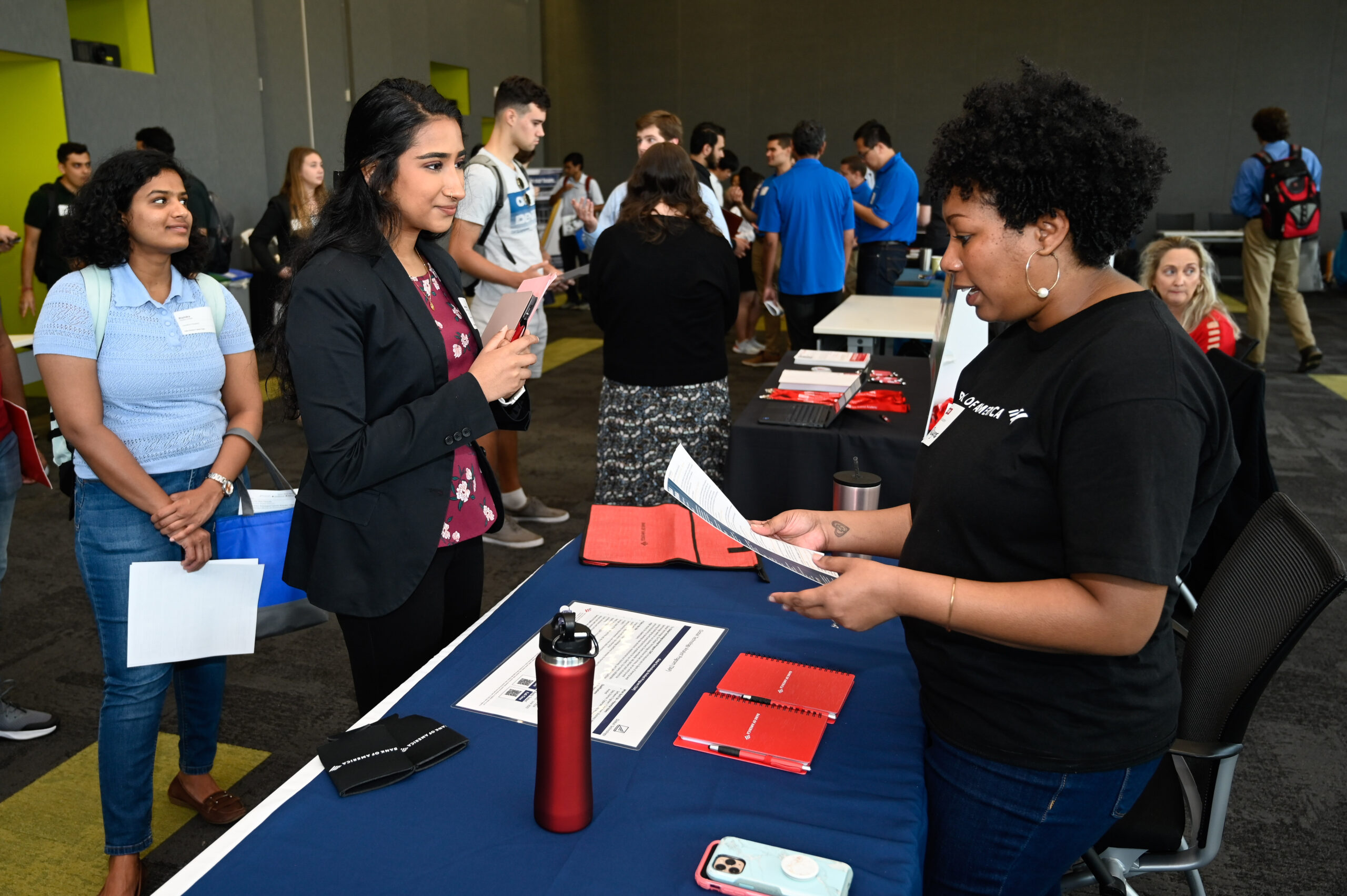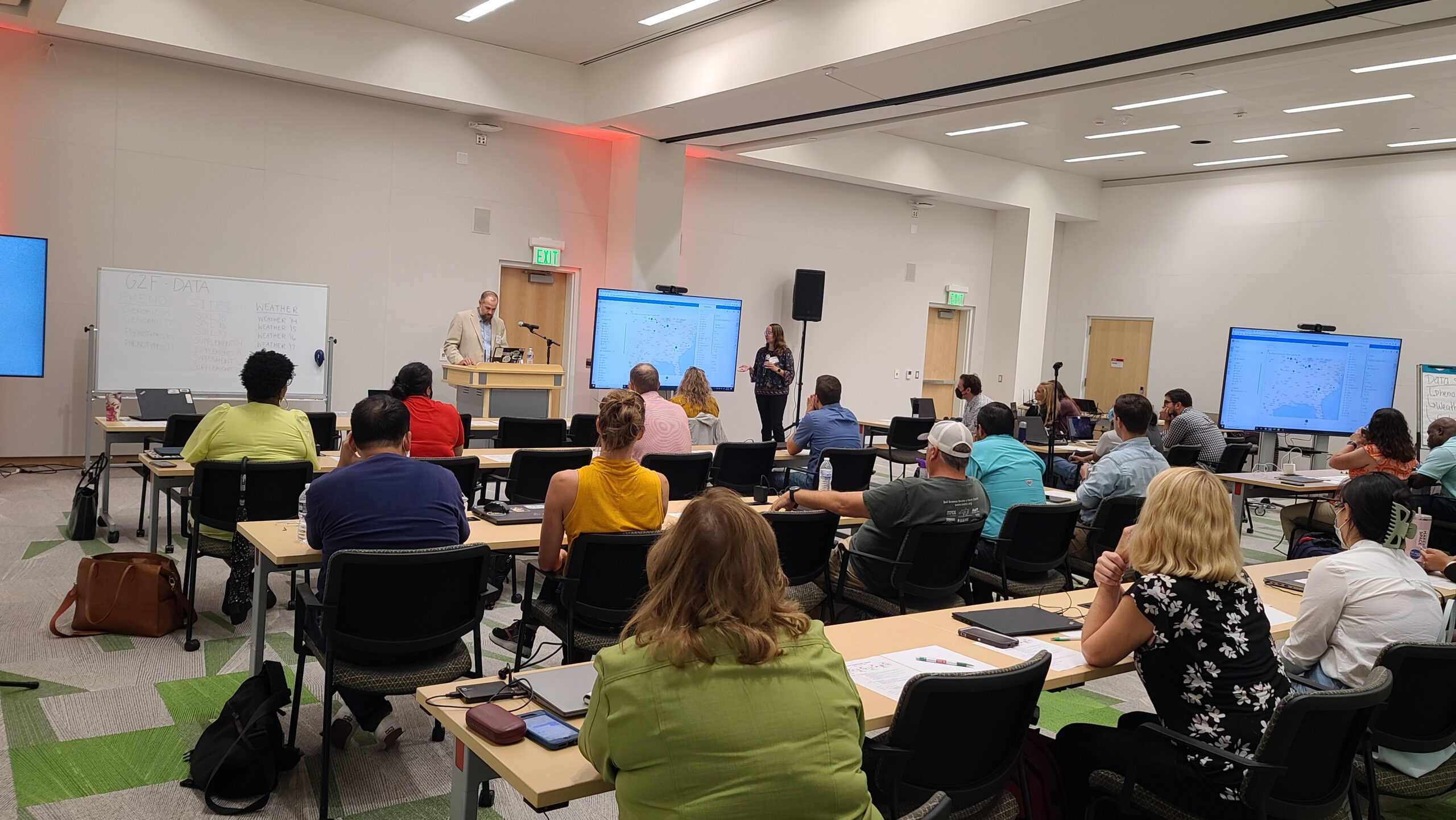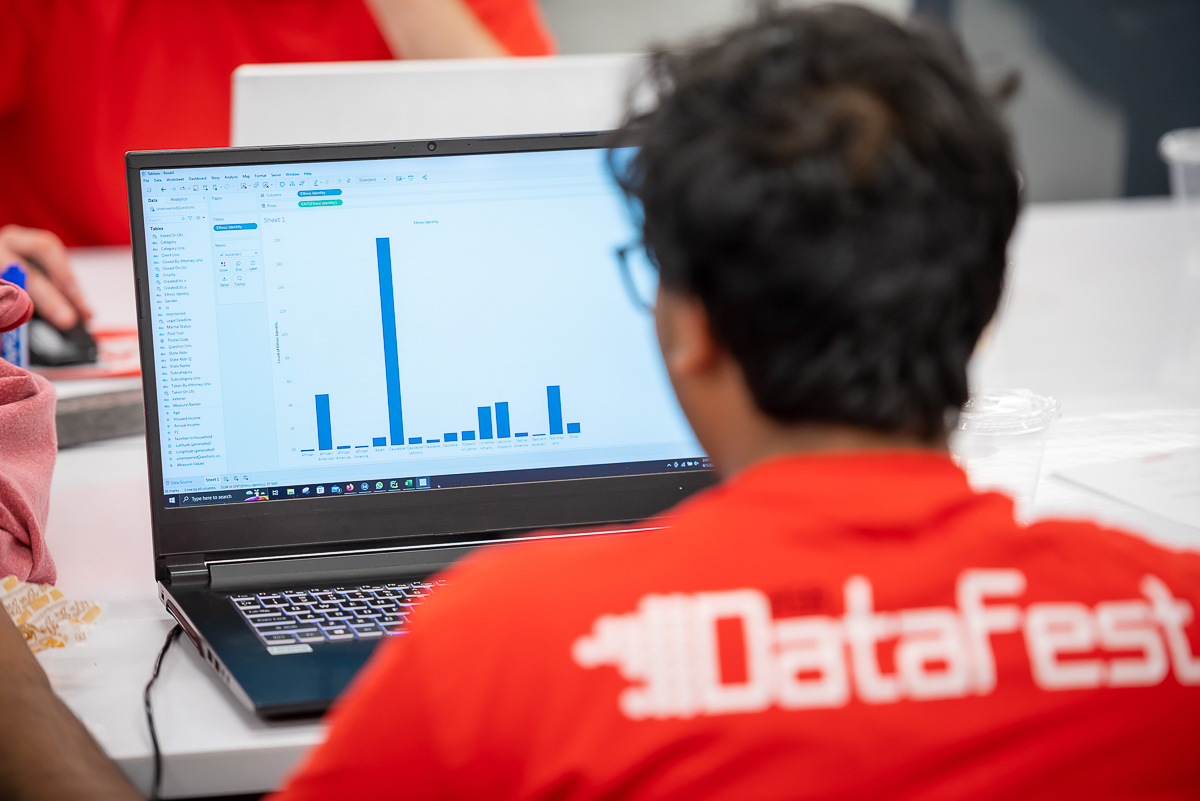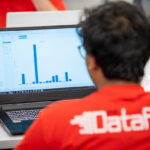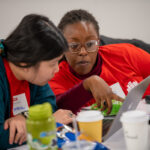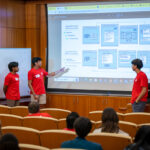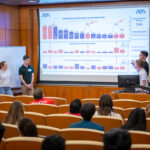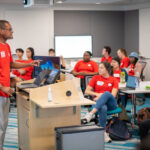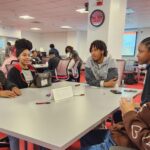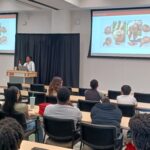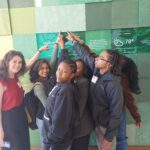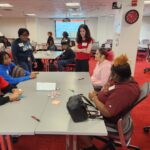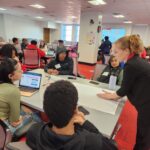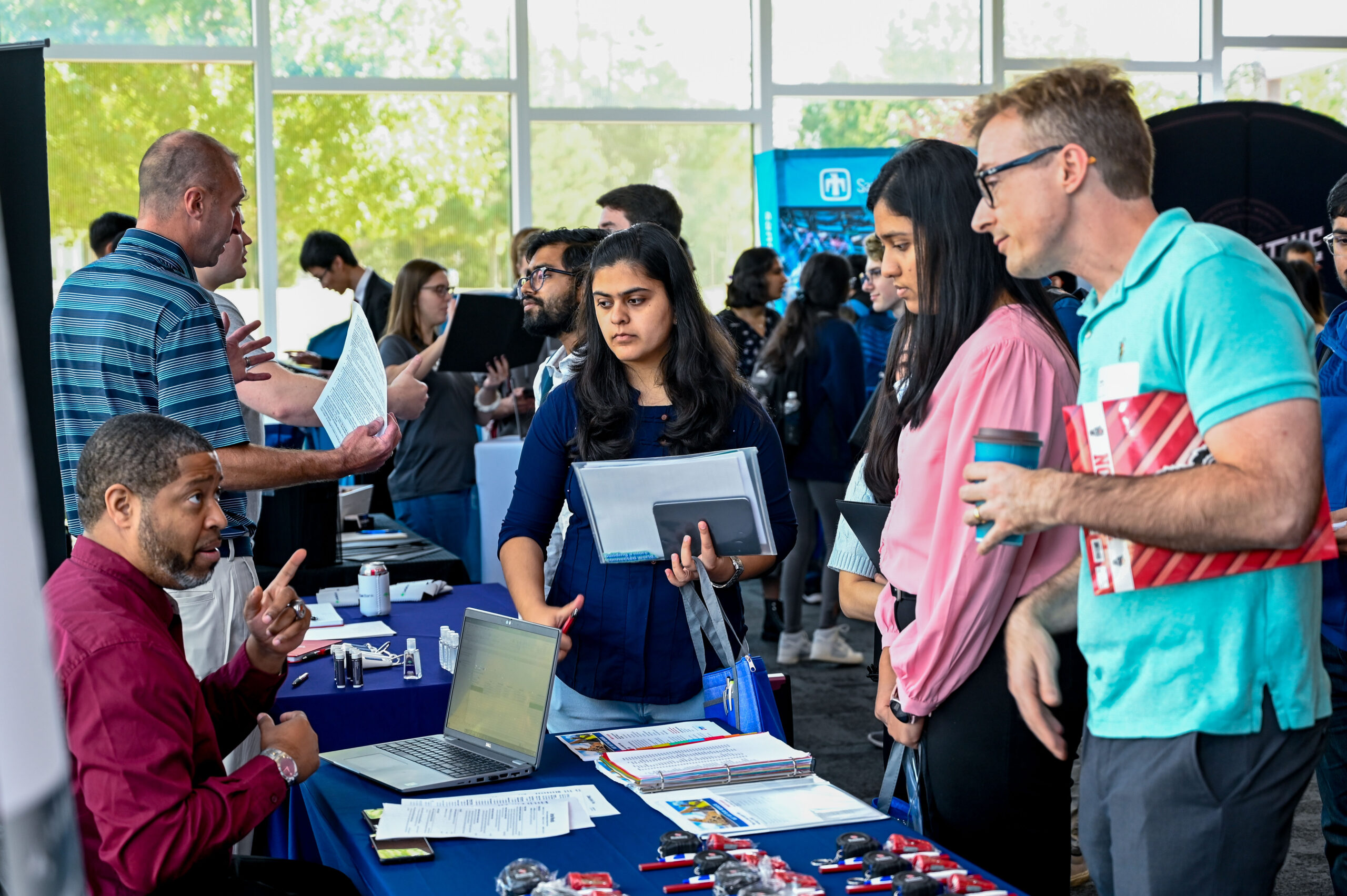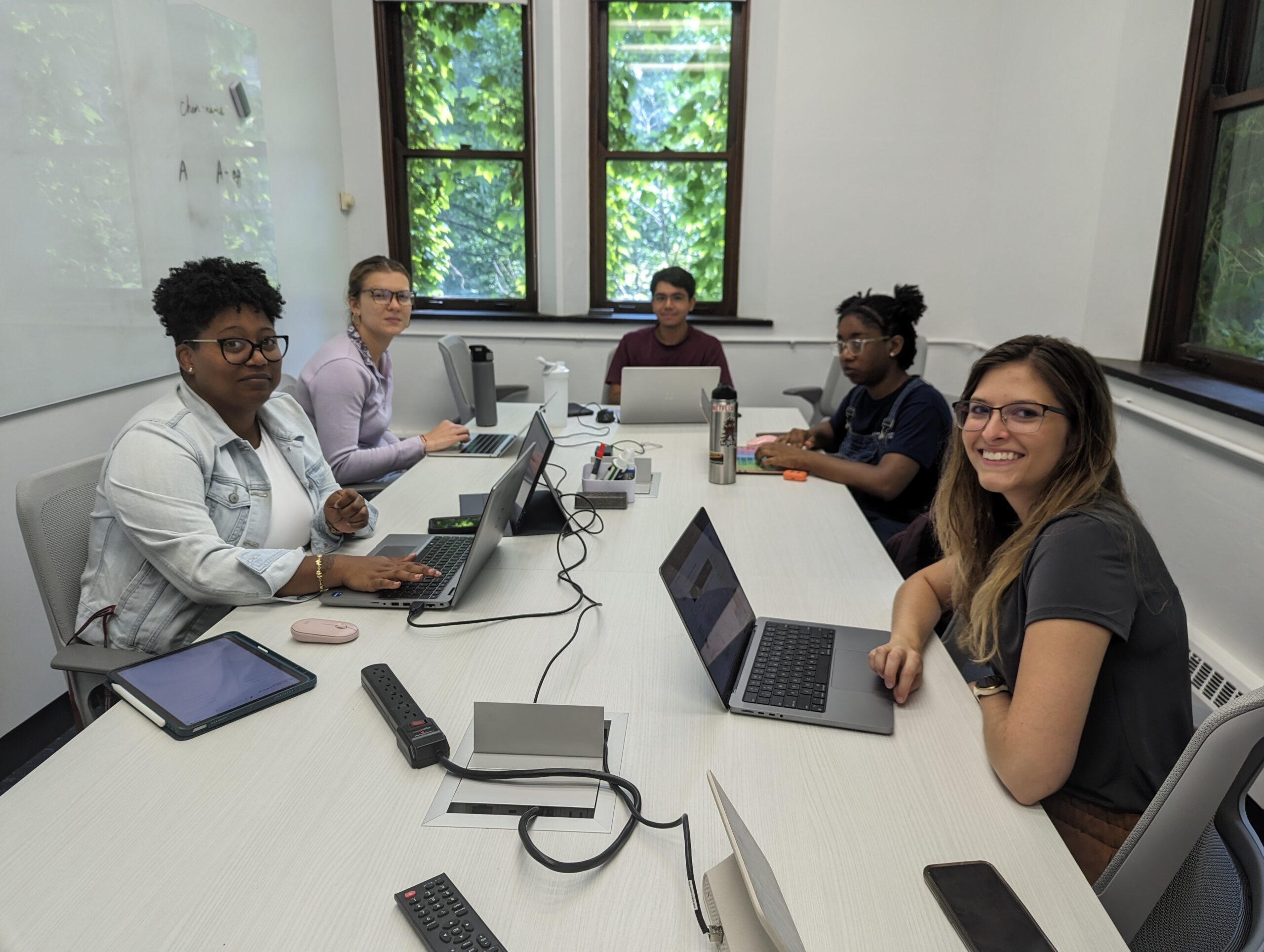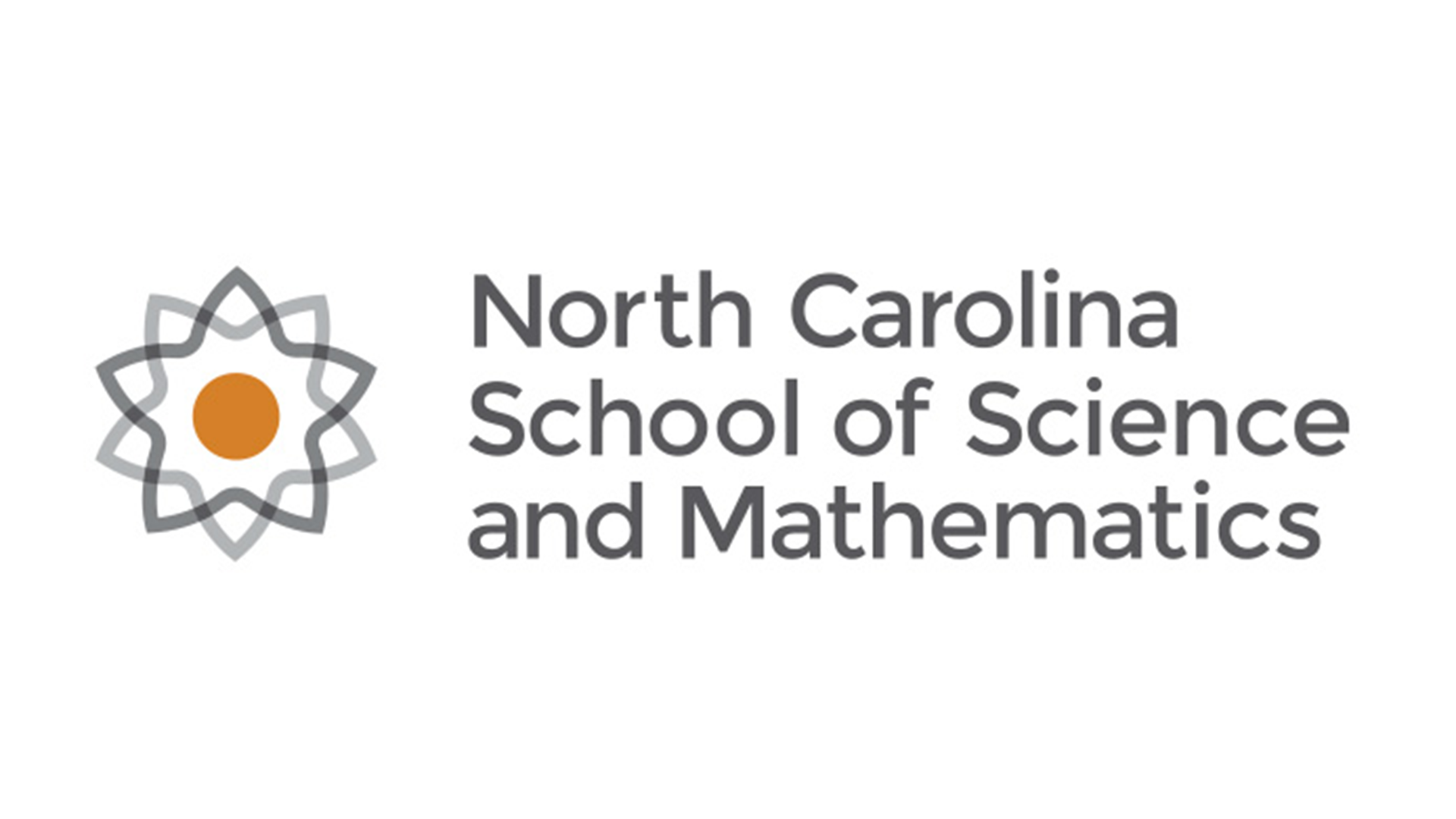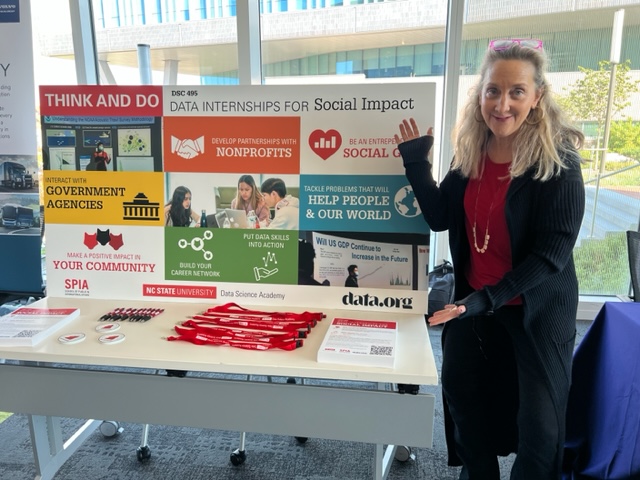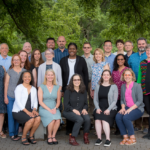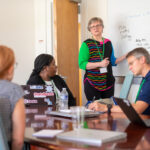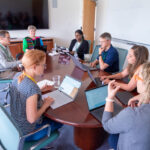Impact Report
Data Science Academy (DSA) Impact Report is a celebration of this year's accomplishments and peek into some of next year's goals.
Programs | K-12 Outreach | Internships | Research Enablement | Courses | Consulting
Building the DSA
NC State is a leader in interdisciplinary teaching and learning, research and outreach. As the University’s first academy, the DSA has strived to implement data science related programs, K-12 outreach, internships, research enablement, courses and consulting across all disciplines and colleges. Establishing yearly events, permanent courses and external and internal partnerships has rounded out the DSA’s second year on campus. As the DSA continues to grow, we will continue to make an impact with the NC State community and bring data science to everyone!
Messages from Leadership
As we reflect on our second year, I am especially appreciative of partnerships we have developed across NC State colleges, local industry, North Carolina government, and beyond! We have connected students, faculty, staff, alumni, and community members to engage data and generate insight on vital issues. Through outreach and partnerships we are collaborating across NC State to partner with industry and lead NC in data science education research and practice. Our motto has come to life – Data Science is for everyone! In the coming year we plan to engage the community with cutting edge data science topics, such as AI, verifiability of solutions and human-machine teaming. We will continue to empower effective, ethical data science research and education.
~Rachel Levy, Data Science Academy Executive Director
The Data Science Academy is developing a niche that is truly unique in the region in the country, a niche as a data science hub at the interface of cutting edge science and technology and the real world needs of the people of the state and beyond. Needs in agriculture, needs in industry, needs in daily life.
~ Rob Dunn, Ph.D. Senior Vice Provost for Interdisciplinary Programs
Over the past year, the Data Science Academy showed that it was an integral part of NC State’s interdisciplinary teaching and learning, research and outreach. By reaching across colleges and outside the university into the community, the academy not only proved that anyone can get involved with data science, but also elevated the university’s reputation as a leader in the field.
~ Warwick Arden, Ph.D. Executive Vice Chancellor and Provost
Programs
Programs and Events throughout the 2022-2023 Year
2023 DataFest at NC State by the Numbers
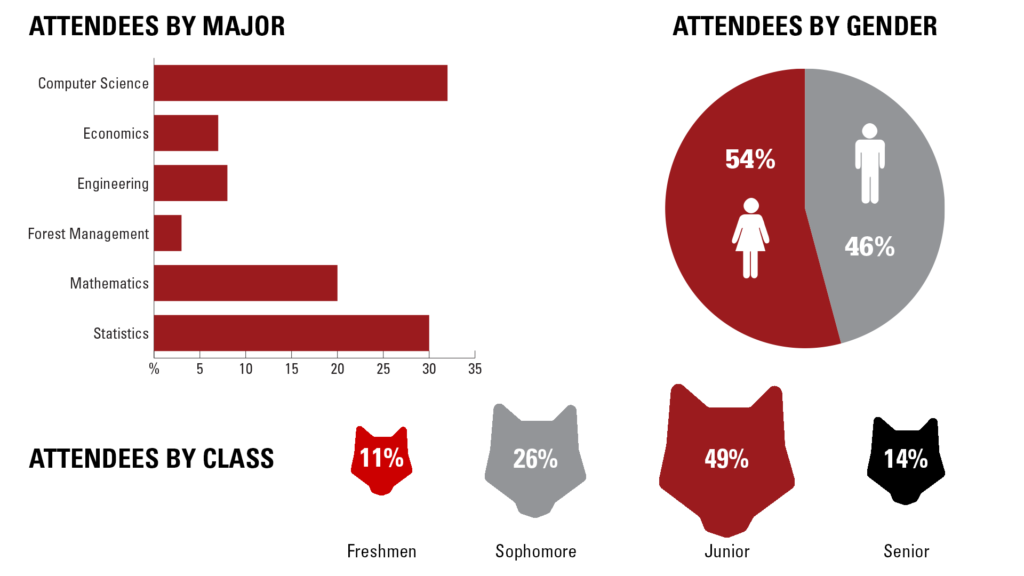
Student Quotes from 2023 DataFest at NC State
This experience not only helped me develop and refine my technical skills in data analysis, but it also provided me with insights into the challenges and opportunities that arise when working with data in a real-world setting.
~ Ashwin Pandey, Class of 2025, Computer Science
I loved the opportunity to explore data analysis with different tools and techniques and get an idea of what I might what to do in a data analytics related career post-graduation!
~ Julia Seidel, Class of 2024, Statistics
Upcoming Programs
Women in Data Science (WiDS) is coming to NC State in March 2024. The DSA is planning to become a local site for the international WiDS conference. This is an opportunity to grow and develop community among women interested in data science, and enhance data skills in a supportive and fun environment. The WiDS Datathon is suitable for participants with all levels of data science experience!
K-12 Outreach
The Data Science Academy (DSA) Data Explorers K-12 Outreach program is a partnership with The Science House at NC State in collaboration with The Friday Institute, the NC School of Science and Mathematics and COMAP. Our goal is to build partnerships to bring workforce-relevant data science upskilling available to every K-12 student and teacher in North Carolina.
Pilot cohort:
- 5 teacher-coaches
- 30 student participants
Mini-Challenge
Students from two rural NC high schools joined forces to practice the process of modeling with data and answer the age-old question, “What makes a roller coaster the best?” Students enthusiastically engaged in the activity, while networking with each other and kindling new friendships.
When we had the data science challenge, I saw something different with my students. I think it was the hands-on thing. They were excited! I feel if we can just tap into that more often and data science, some of them will even do better. I think the data science project could contribute to students’ interest in math.
~ Kelly, teacher for Granville County
Skew the Script
Skew the Script is an educational platform offering free statistics lessons with real-world context. The DSA has partnered with Skew the Script, Data Science for Everyone and CourseKata to create the “After the AP Data Science Challenge,” a four-module data science program for students who completed AP Statistics. The challenge uses Jupyter notebooks and R coding to explore data, visualizations, linear and multiple regression models, and machine learning. The program was piloted in US classrooms using Canvas and received positive feedback from educators, as indicated by a post-survey conducted by the DSA.
Upcoming K-12 Outreach
In partnership with The Science House’s Imhotep Academy, Data Explorers will reach over 300 students by building new data science components into existing STEM programs for middle school students. NC State students will serve as mentors.
Internships
Research Enablement
The DSA seed grant program increases interdisciplinary data science research and collaboration at NC State. This year’s awards included support from the Office of Research and Innovation, the Plant Sciences Initiative and the Wake Forest Center for Biomedical Informatics.
2022-2023 Seed grants by the numbers
Courses
We really appreciate the work of our curriculum committee, which has representation from all of the colleges and has successfully gained approval of permanent course numbers, which allows DSA to begin to collaborate with colleges and programs on certificates and minors.
DSC Courses by the Numbers
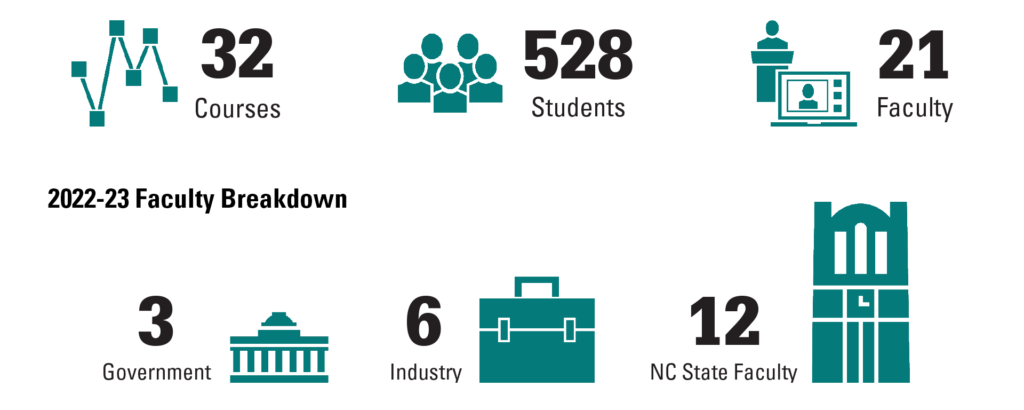
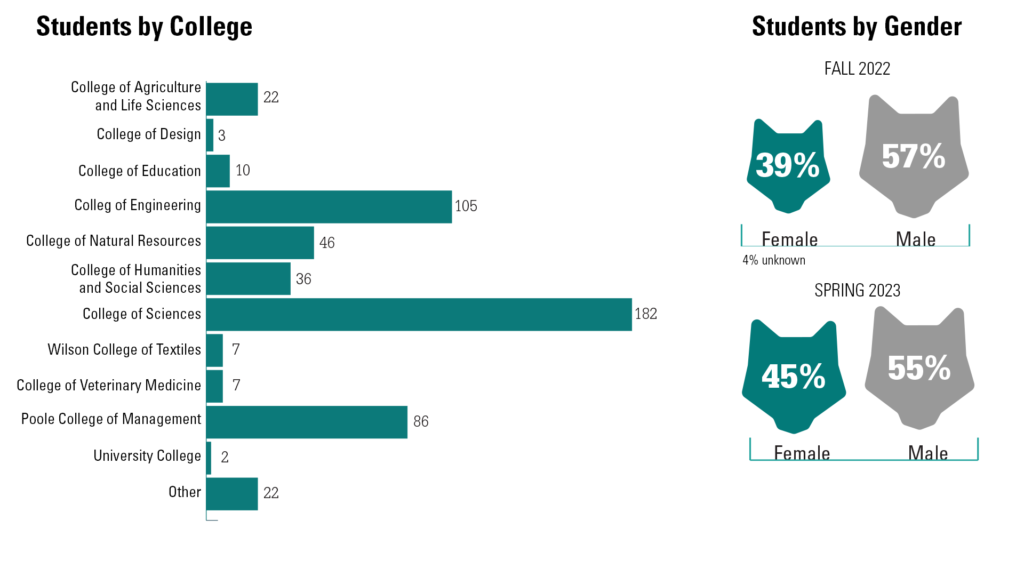
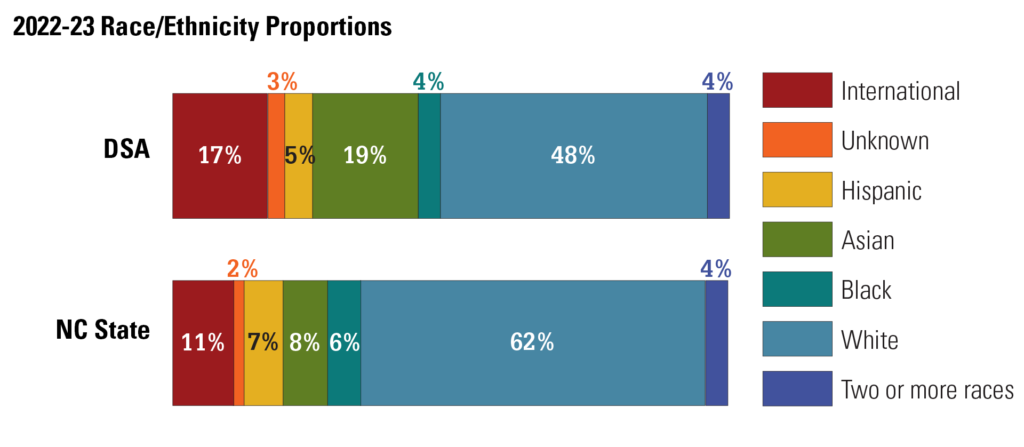
Course Collaboration Leaders (CCLs)
Course Collaboration Leaders (CCLs) are students who support peers enrolled in our DSC courses. They are a resource and provide study groups for all DSC students throughout each semester. They also help staff DSA events to engage the NC State community with data science related topics.
My time as a CCL for the Data Science Academy has been valuable, as I’ve been able to interact with a diverse group of students.
~ Eric Warren, CCL 2022-2023, Class of 2024
NC State Data Science Education Postdoctoral Fellowship
The National Science Foundation (NSF) funded the DSA to hire four postdoctoral fellows who will develop, implement, scale, and share a long-term, robust research program that assesses the efficacy of the ADAPT model and related courses. We are excited for the postdoc scholars to help the DSA apply the ADAPT model to a variety of data science education settings, such as online courses and internships.
ADAPT Course Model
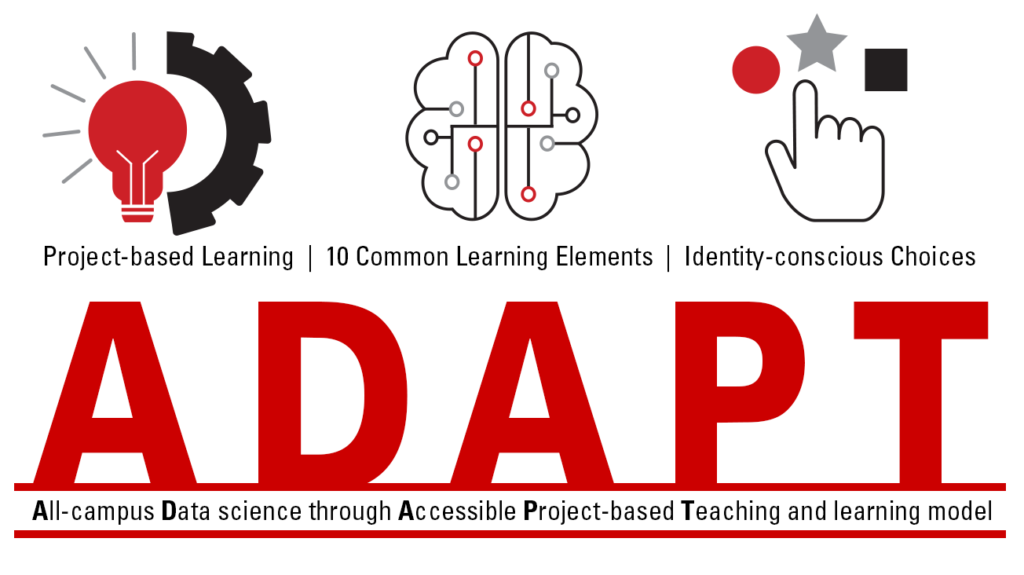
The ADAPT: All-campus Data science through Accessible Project-based Teaching and learning model is a way of designing student-focused courses. ADAPT data science courses fit into one of three levels: No Prerequisites, Suggested Skills and Research Ready. The DSA develops 1-credit hour project-based courses to be accessible for all data science enthusiasts at every skill level.
Consulting
The Data Science Academy provides collaborative data science support to researchers and students at NC State. Working in coordination with the NC State University Libraries, graduate RAs with expertise in programming, data manipulation and cleaning, statistical and quantitative analyses, and data communication are available to consult on a broad range of projects on campus.
Projects
Models for Sustainable and Inclusive Data Science Consulting and Collaboration in Higher Education Workshop Series
The DSA and the NC State University Libraries co-organized and hosted a workshop series funded by the Alfred P. Sloan Foundation. The series focused on mechanisms for delivering data science research support via consulting and collaboration models, as well as developing policies and discussing infrastructure that supports robust, inclusive and sustainable practices.
A special issue of the journal Stat published by Wiley will feature output from the collaborative work accomplished by the cohort during the workshop, as well as other articles on the topic.
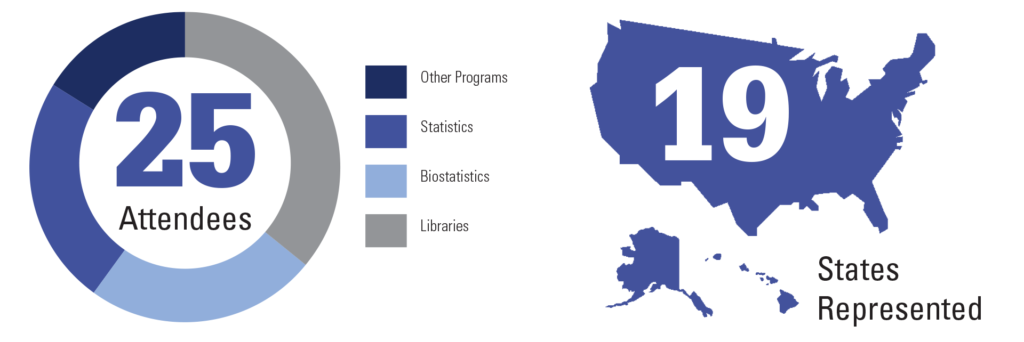
- 9 out of 25 are from libraries
- 6 out of 25 are from Biostatistics programs
- 6 out of 25 are from Statistics programs
- 4 out of 25 are from other programs
NC State University Libraries Partnership
The DSA is located in D.H. Hill Jr Library, one of two main libraries at NC State. The Hill Library offers a Data Experience Lab and several classrooms and consultation spaces dedicated to data and visualization services. A large-scale visualization studio is also available. The Libraries’ Data & Visualization Services (DVS) department works closely with the DSA to support the university community’s increasing needs for data science research, education, and expertise. Together, the DSA and DVS have developed a model for collaborative consulting services, staffed by Graduate Research Assistants, to offer data science expertise for all students, faculty, and staff.
